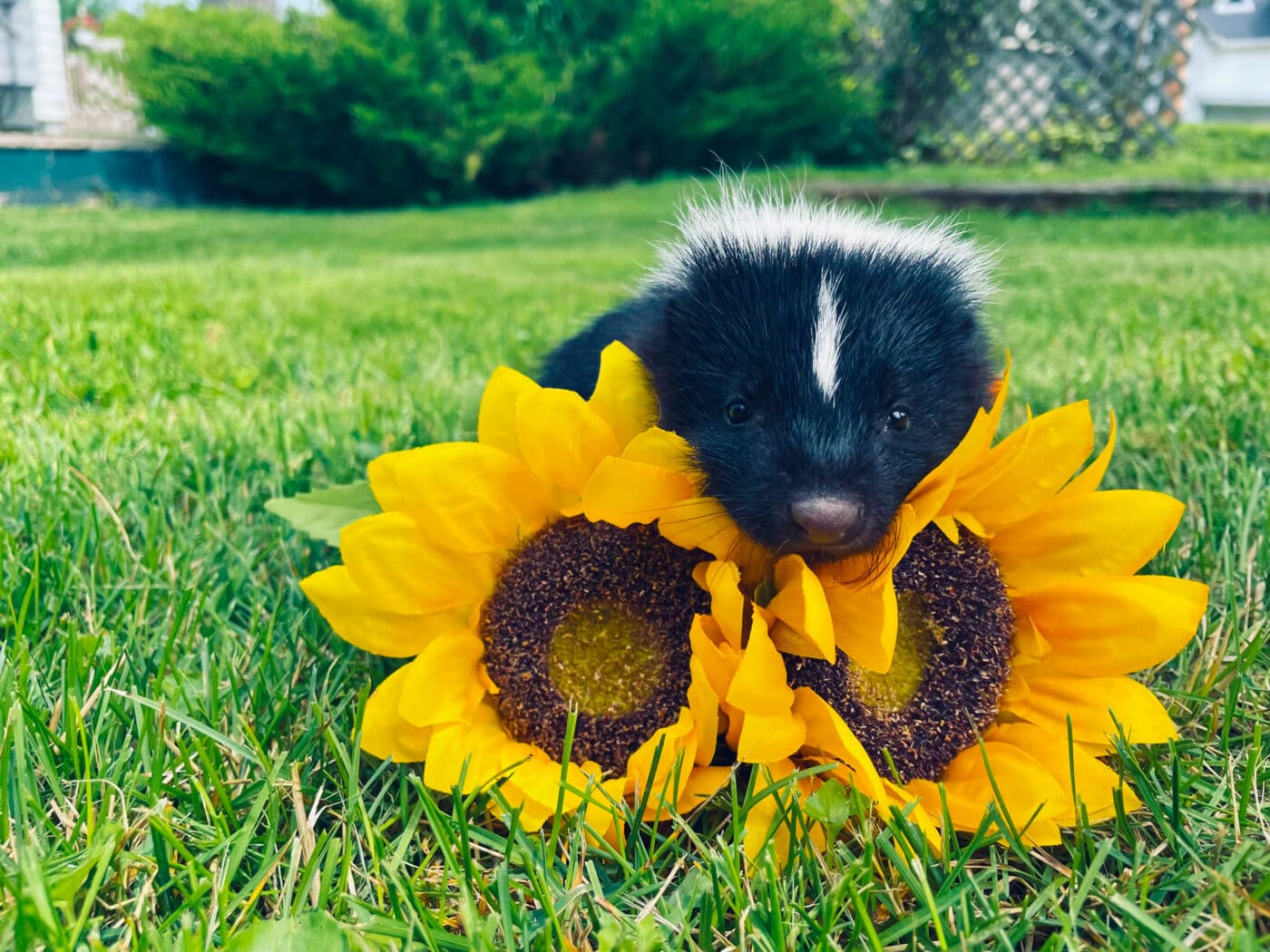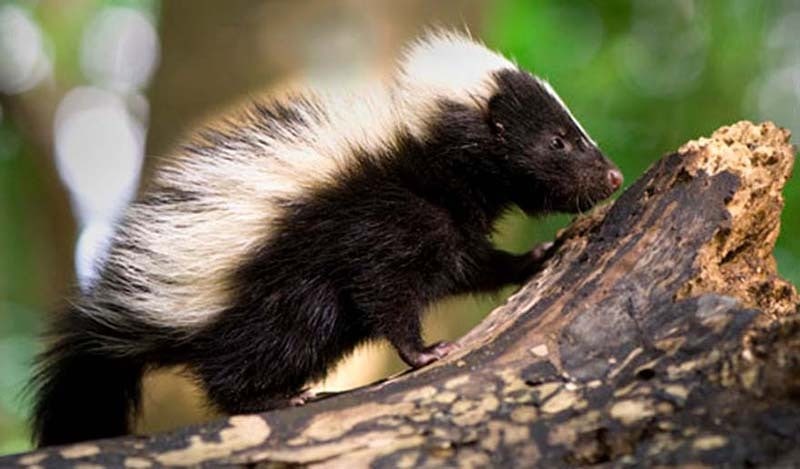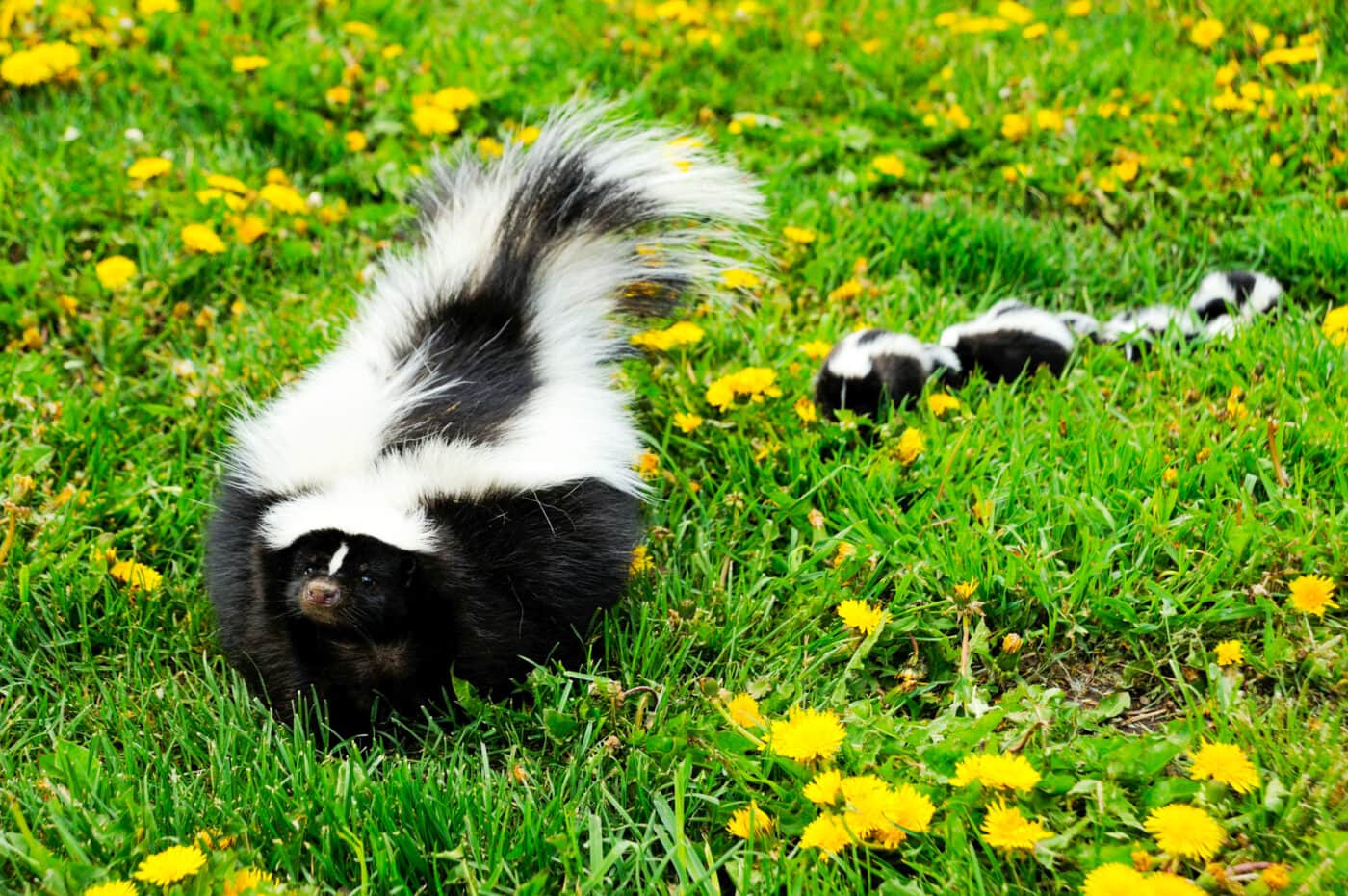It turns out skunks do a lot more than create a big stink. Here’s the shocker: They often help humans smell better, by yes, contributing to your fancy perfume. Here are some amazing reasons why these little stinkers deserve more love.

Skunks belong to the family Mephitidae, which means “double foul odor.”
They have the ability to spew the noxious secretion from twin anal glands as a mist or a stream that can reach up to 15 feet. (Either way, you can smell the stink a full mile away.) Predators or pets who receive a “direct hit” — equivalent to “getting a face full of tear gas,” says one writer — can suffer from temporary blindness and vomiting. That’s because it contains several volatile (and flammable) compounds known as thiols.
Some perfume manufacturers rely on skunk secretions.
The skunks’ offensive output also features ingredients that cause the smell to linger for weeks. Distilled from the thiols, these chemicals are added to perfumes to make the pleasant (and expensive) scent last longer. BTW, skunks themselves are turned off by several smells — citrus, ammonia, mothballs, and the urine of predators like coyotes and foxes.
Skunks are basically squatters.
Their homes of choice tend to be the abandoned burrows of woodchucks and other animals. They’ll also nest in hollow trees or stumps, and occasionally underneath decks and porches. (When that happens, it’s time to contact a humane pest-control service.) Skunks don’t hibernate, but they’ll stay “indoors” throughout a long cold snap.

Skunks are primarily nocturnal and solitary.
Their pungent defense mechanism evolved because of this. A 2014 study concluded that small mammals awake in the daytime face the greatest threats from carnivorous birds, requiring them to work together to be on the lookout for them. On the other hand, solo creatures of the night must watch out for terrestrial predators. Skunks’ ability to spray allows them to fend off surprise attacks. They also rely on keen senses of hearing and smell. And if need be, they can run up to 10 mph.
Skunks eat just about anything.
Their diet includes beetles, wasps, bees, crickets, grubs, berries, nuts, mushrooms, eggs, worms, frogs, mice, voles, and even cottontail rabbits. They support the environment by eating lots of farm and garden pests and consuming carrion that otherwise would emit its own foul odors.
Like deer, male skunks are called bucks and females does.
They mate in February and early March, and the females give birth in May to a litter averaging around six young, called kits. Born blind and deaf, kits stop nursing after about two months, but they stay with their mom for up to a year, until it’s time for them to mate.

Skunks’ stripes pinpoint the location of their “secret” weapon.
Separating on their head, the two white bands meet back up at the tail, near the glands containing the “eau de skunk.” Biologists think this serves as a way of alerting predators to what’s in store if they don’t back off ASAP. Skunks prefer not to spray — it requires energy and takes time to replenish. This visual intimidation, along with pre-spray antics like hissing, stomping their rear feet, and raising their tail, allows them to reserve their ultimate defense as a last resort.
Skunks and cats can get along.
According to the state Department of Environmental Conservation, “In the days of small dairy farms, several dozen barn cats often ate from the same pan of milk after each milking. Many a farmer arrived to pour the dregs of the milk strainer into the cat dish and found that one of the cats had a broad tail and a characteristic white ‘V’ across its back.” The DEC adds this warning: “It is not wise to feed a house cat outside your home after dark.”
If you or Fido has an unpleasant encounter with a skunk, try these remedies for getting rid of the smell. Skip the tomato juice — it only masks the odor.